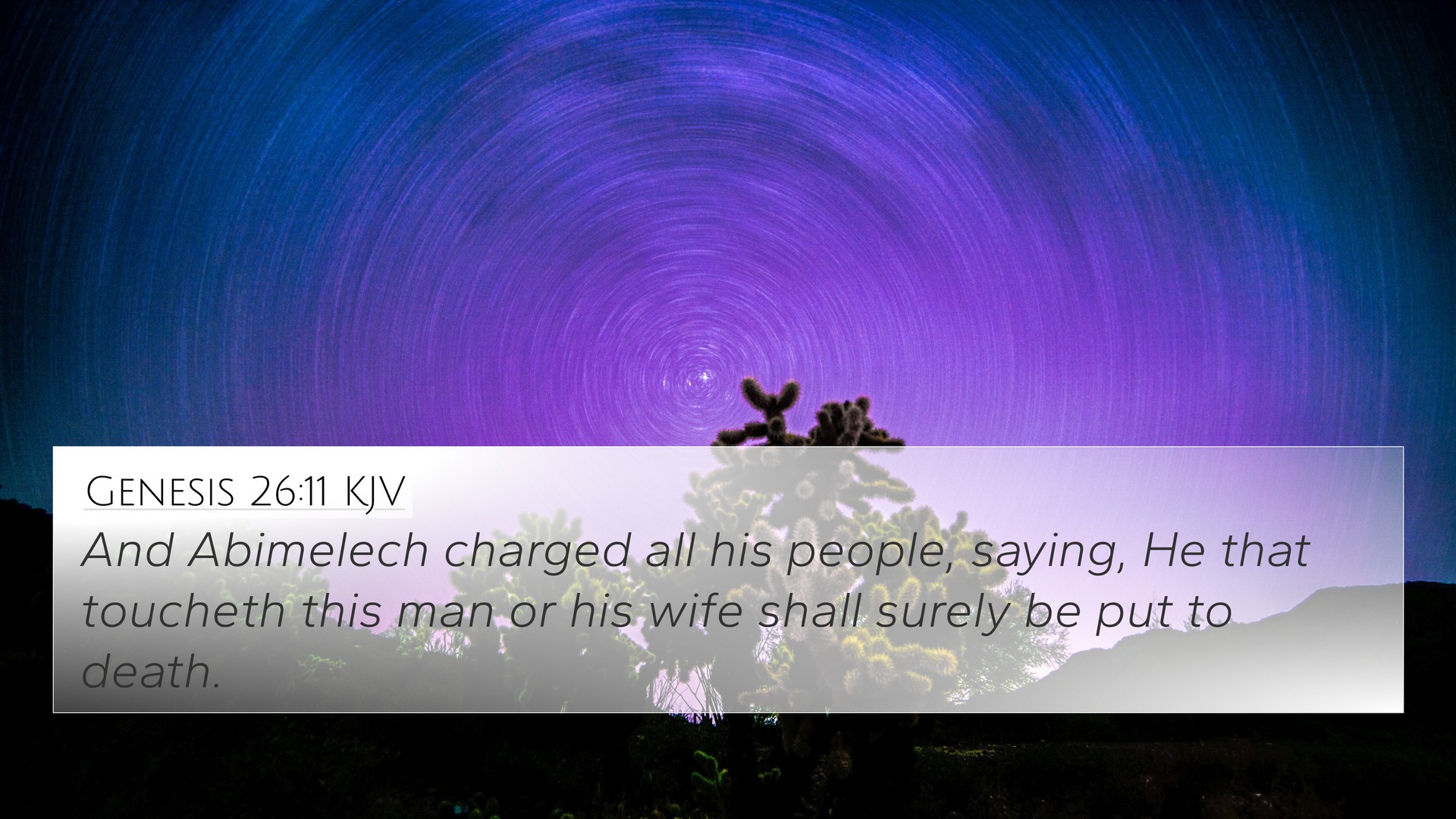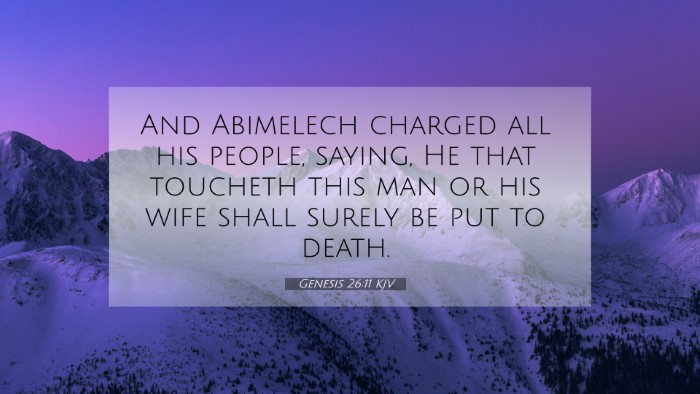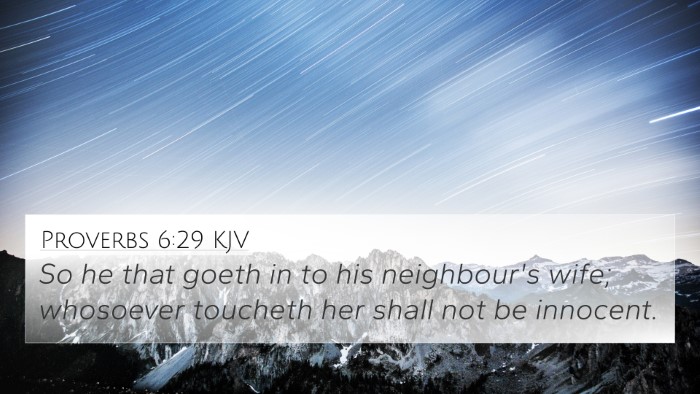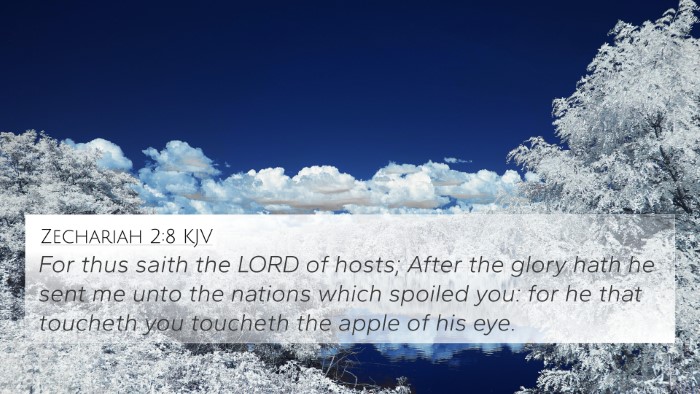Understanding Genesis 26:11
Genesis 26:11 states: “And Abimelech charged all his people, saying, He that toucheth this man or his wife shall surely be put to death.” This scripture is part of the narrative surrounding Isaac’s time in Gerar, where he faced challenges similar to those of his father Abraham. Below is a comprehensive interpretation of this verse, combining authoritative insights from public domain commentaries, illuminating its theological implications and contextual relevance.
Contextual Overview
In this chapter, Isaac encounters difficulties due to famine and relocates to Gerar, where he becomes involved in a situation akin to the one with his father Abraham and Sarah. Here, Isaac represents God's covenant community, and the text indicates a divine protection surrounding him and his family.
Commentary Insights
Matthew Henry's Commentary
Matthew Henry notes that Isaac's fear prompted him to deny his relationship with Rebekah, reflecting a common human frailty when faced with danger. The king's edict further demonstrates the seriousness of the situation, indicating that the king recognized God’s favor upon Isaac. Henry emphasizes that this moment signifies God's safeguarding of Isaac within a foreign land.
Albert Barnes' Notes
Albert Barnes explains the decisiveness of Abimelech’s command, highlighting the significance of threatenings in ancient Near Eastern culture. The imperative to protect Isaac and Rebekah shows the high regard for moral order instilled within a society that recognized divine presence and blessing. Barnes suggests that this represents a profound respect for the covenant made by God with Isaac’s family.
Adam Clarke's Commentary
Adam Clarke elaborates on the implications of the command by Abimelech as a demonstration of God’s influence even among Gentile rulers. According to Clarke, Abimelech’s awareness and reverence for the threats against Isaac allude to the spiritual and moral dynamics at play. He highlights the notion of divine protection and its impact on the actions of secular authority figures.
Theological Significance
The issuing of Abimelech's edict symbolizes the claim that covenant relationships bear on community structures. The protection ordered by Abimelech implies that God’s favor has tangible effects, prompting even those outside the covenant to respond with reverence. This verse can be seen as a metaphor for God's everlasting commitment to his chosen people.
Biblical Cross-References
- Genesis 12:17-20: God's protection over Abraham when he lies about Sarah.
- Genesis 20:3: God's intervention in the case of Abraham and Abimelech regarding Sarah.
- Genesis 21:22-24: Abimelech’s acknowledgment of God’s blessing on Abraham.
- Genesis 31:24: God speaking to Laban regarding Jacob, indicating divine oversight.
- Exodus 12:13: The blood as a sign of protection over the people of Israel.
- Psalms 105:14-15: God’s admonition against harming His prophets.
- Luke 12:4-5: Christ’s teaching about the fear of God versus fear of man.
Connections Between Bible Verses
Genesis 26:11 can be cross-referenced with several passages that illustrate similar themes of divine protection and covenant fidelity. The aforementioned verses showcase the continuum of God's involvement through His covenantal promises, protecting His people across different narratives.
Comparative Bible Verse Analysis
By comparing Genesis 26:11 with other scripture, we notice a pattern of God's protective measures over those who are in His will. This recurring theme serves as a reminder of God's sovereignty and faithfulness throughout Biblical history. The act of Abimelech reflecting God's care toward Isaac underscores the belief that divine favor draws out respect, even from those outside the covenant community.
Conclusion
Genesis 26:11 serves not only as an isolated scripture but as part of a wider tapestry of God’s interactions with humanity. Through this verse, we learn about the significance of trust, divine protection, and the implications of living under God’s covenant. Exploring Bible verses that relate to each other enriches our understanding of the deeper meanings embedded within scripture, and serves as an invitation for continuous study and reflection on God’s word.






